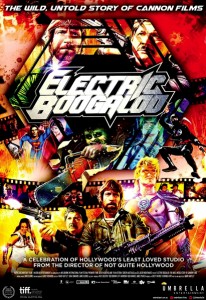
“Electric Boogaloo: The Wild, Untold Story of Cannon Films” Theatrical Poster
Director: Mark Hartley
Writer: Mark Hartley
Cast: Olivia d’Abo, John G. Avildsen, Martine Beswick, Richard Chamberlain, Bo Derek, Lucinda Dickey, Michael Dudikoff, Robert Forster, Elliott Gould, Tobe Hooper, Dolph Lundgren, Franco Nero, Molly Ringwald, Robin Sherwood, Alex Winter, Franco Zeffirelli, Albert Pyun
Running Time: 107 min.
By Paul Bramhall
As a child growing up in the 80’s, I have fond memories of my early movie watching days. Often the TV would show commercials for late night movies to be shown way past my bedtime, and I would beg my parents to let me watch them. Over time a kind of pact was formed, my parents would record the movie on our recently bought VHS recorder, watch it themselves first, and if they thought it was suitable, they’d then let me watch it. However you should never underestimate a curious child. As these movies were almost always shown on a Friday night, I soon devised a plan which saw me waking up early on a Saturday morning, while my parents were still sound asleep. I would sneak quietly downstairs, close the living room door, and proceed to devour whatever had been shown a few hours earlier, long before my parents cautious eyes could cast their judgement.
Through these movies I encountered my first ninja, who came in the form of a possessed female yoga instructor, in what I would discover years later was Ninja 3: The Domination. Through these movies I was able to lay eyes for the first time on a fully naked female, a sexy alien who years later I would find out was Mathilda May in Lifeforce. And through these movies I learnt that the best way to deal with terrorists was to take a machine gun in each hand, and kill them like they’re going out of fashion, in what I would eventually realize was Invasion USA. While ninja possessed yoga instructors, sexy naked aliens, and Chuck Norris may not sound like they have a lot in common, the one thing these movies all share, is that they were made by the studio Cannon Films.
Cannon Films, responsible for corrupting my young innocent mind with images of sex and violence, also happens to be the topic of Australian film maker Mark Hartley’s latest documentary. Hartley, who gained international acclaim for his fantastic 2008 feature Not Quite Hollywood: The Wild, Untold Story of Ozploitation!, is an obvious choice to tell the tale of the late Menahem Golan and his cousin Yoram Globus, the men behind Cannon Films. While Not Quite Hollywood was a captivating watch, his follow up Machete Maidens Unleashed!, a look at the Filipino exploitation scene of yesteryear, was a disappointing letdown. For an industry that gave us such classics as Silip: Daughters of Eve, the midget action star Weng Weng, and not to mention the countless Filipino-Hong Kong co-productions featuring Bruce Lee lookalikes, the documentary bizarrely decided to focus purely on the US produced B-movie output championed by the likes of Roger Corman. Arguably the most uninteresting aspect of an industry filled with local tales and talent.
Thankfully, Hartley more than redeems himself with Electric Boogaloo: The Wild Untold Story of Cannon Films. It’s an entertaining 1 hour 45 minute journey, which covers the beginnings of Cannon Films from when it was a fledgling company under its founders Dennis Friedland and Christopher Dewey, to when Golan and Globus took over, which is arguably were the fun starts. The cousins from Israel had already developed somewhat of a reputation for themselves on their home soil as dependable film makers, even scoring a few hits, but their dream had always been Hollywood. So in the early 80’s that’s exactly where they found themselves, and the rest as you could say, is history.
Hartley’s documentary takes the approach of using that history, and whirling through what was a highly chequered era by breaking it down film by film, which will surely make anyone who’s watching immediately want to give the movies in question another watch. Some of the most entertaining highlights focus on the studios decision to try and create a similar system to what the Shaw Brothers had, with actors contracted into making several movies under one contract, in order to try and raise their outputs bankability. The ‘stars’ in question became Charles Bronson and Chuck Norris, and as it’s explained, it got to a point in which a new bunch of scripts for action movies would be delivered to the studio, and the casting staff would simply be asked to split them 50/50, half would be Bronson flicks, and the other half would be Norris flicks.
The documentary is brimming over with clips from Cannon’s back catalogue, and in all fairness probably contains more explosions, nudity, punches, Chuck Norris, and moments of bad acting than any standalone movie could ever hope to achieve. Hartley’s also rounded up a cast of over 80 talking heads to narrate us through the studios schlock filled history, from Michael Dudikoff (who whimsically recalls how, after starring in American Ninja, Golan promised he was going to be the next big star, he just had to “be patient”) to the former chief of MGM, Frank Yablans. Yablans was in charge when MGM made a deal to distribute Cannon’s movies, and even now seems to get riled up at the mention of the studio, drily recalling how Cannon provided them with nothing but trash and more trash.
There are some faces who are still around that no doubt fans will be disappointed to see don’t make an appearance. Chuck Norris himself, who starred in Cannon’s Missing in Action series and the Delta Force movies, is nowhere to be found, although to compensate there is plentiful archive interview footage, some of which amusingly sees him attempting to defend the violence found in the likes of Invasion USA. Sho Kosugi, the star who featured in Cannon’s ninja movies Enter the Ninja and Revenge of the Ninja, along with his son Kane Kosugi, are also both sadly missing from proceedings. Most interestingly is an onscreen explanation at the end of the documentary that explains that both Golan and Globus were approached to appear but refused, instead going ahead and creating their own Cannon story in the form of Israeli director Hila Medalia’s The Go-Go Boys, which in typical Cannon style, arrived on screens before Hartley’s own could be completed.
Unlike their own version of events though, Hartley’s documentary successfully captures the fast paced nature of Cannon’s own output, creating a highly entertaining overview that manages to be both a love letter to the movies it produced, as well as maintaining a subjective view of the film industries opinion of the cousin’s infamous way or working. By the time the focus turns to Cannon’s demise, there’s almost a sense of melancholy as the studio tried to turn its fortunes around by buying the rights for the likes of the Superman franchise, and creating a sequel on half the budget they’d been advised would be required. Not to mention attempting to create an arm wrestling version of Rocky with Sylvester Stallone with Over the Top, and Dolph Lundgren also weighs in with his bemused memories of working on Masters of the Universe.
Above all though, Golan and Globus loved movies with an unwavering dedication, and no matter how bad their own were, there was never a moment when that love diminished. At one point a former Cannon staff member recalls telling Golan how things looked bleak, as they owed the bank 5 million dollars. He explains that Golan turned to him, furious, and began yelling, “Why do we owe the bank ONLY 5 million dollars!? We should owe the bank 100 million dollars, we need to make more movies!!!” While it was often misguided, the impression that’s left is one of the passion that went into Cannon’s output, and Hartley seems to have put an equal amount of passion into making Electric Boogaloo. If you’re a fan of Cannon Films, check it out, and if you’re not, give it a watch, and by the end of it you will be.
Paul Bramhall’s Rating: 8/10

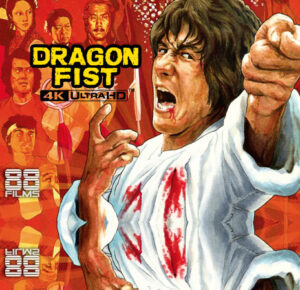
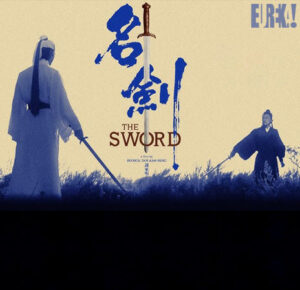
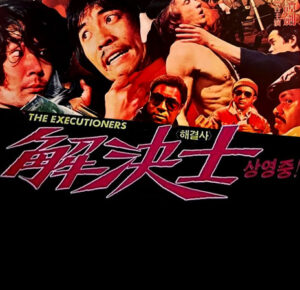
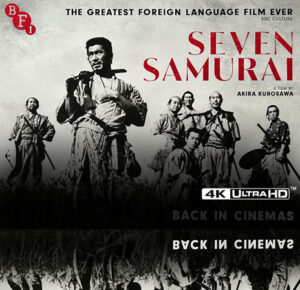


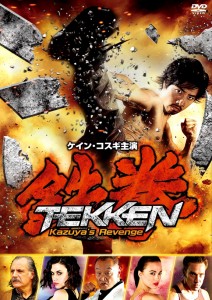















12 Comments